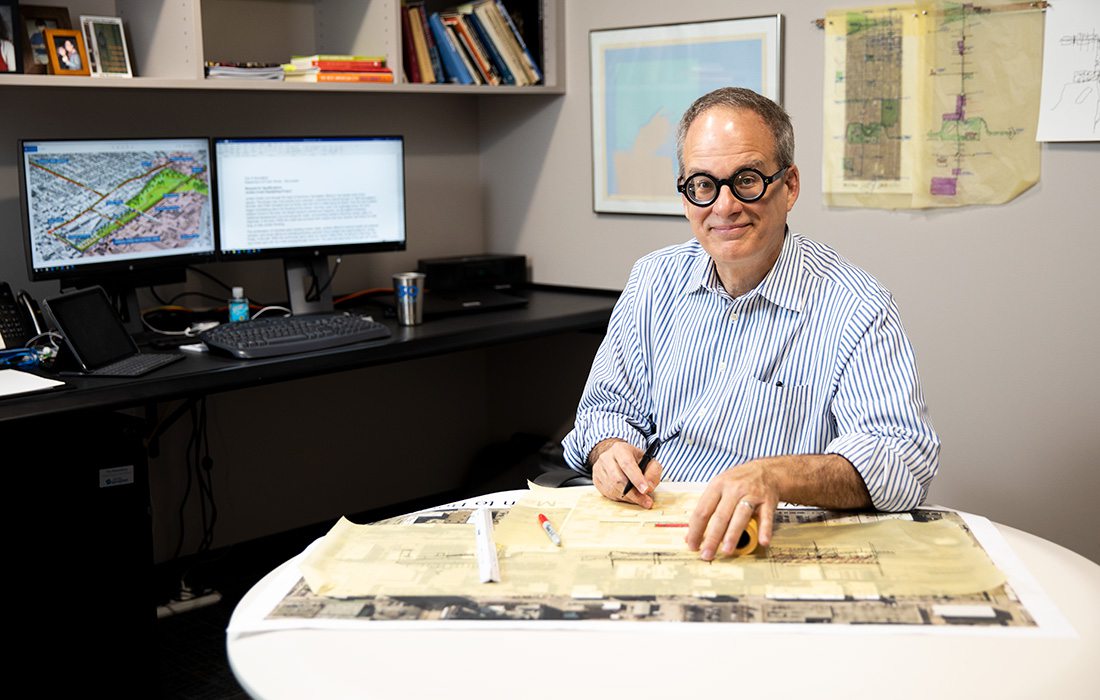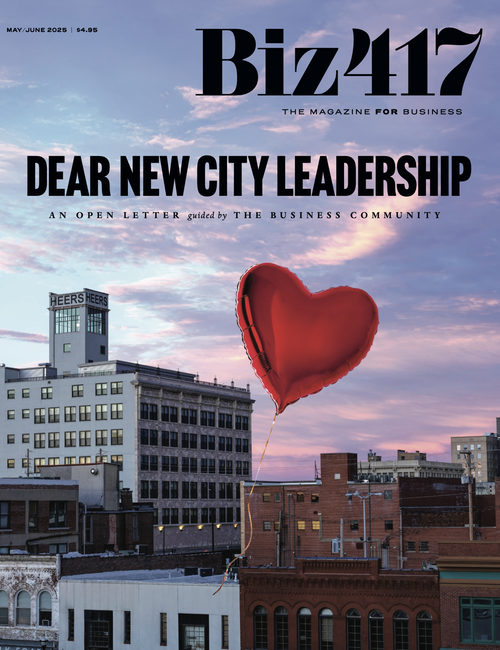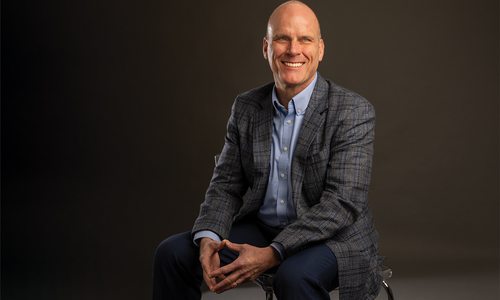
Leadership
How Tim Rosenbury is Redefining the Public Space
Tim Rosenbury started his new position as Director of Quality of Place Initiatives with the City of Springfield just as COVID-19 began impacting the local community. Now he’s using his expertise to rethink what public space will look like in the future.
By Jenna deJong
Jul 2020

Biz 417: How has COVID-19 disrupted your plans for the Grant Avenue project and daylighting Jordan Valley Creek?
Tim Rosenbury: Everything basically was turned upside down… While I’m certain that what I’m doing remains really important for the future of our community, there is a public health crisis going on, and sometimes I have to remind myself that what I’m doing matters also. It has not been the way anyone planned it, probably, but that’s okay. I’m flexible. I can pivot, and I have. At the same time, council has not said this is less of a priority. It’s just that there’s this greater priority of addressing our community’s health and our economy in a time of crisis.
Biz: How has COVID-19 changed your outlook?
T.R.: COVID-19 has forced me, as an advocate for public space, to slow down a little bit and think about what public space might be in a post-COVID-19 era. The idea of people coming together in tight spaces and being shoulder-to-shoulder. I am hopeful for a time when that’s possible, but I’m also believing that it might not be the norm. I’m also thinking that the handshake may be a thing of the past. And I think about how people interact in public, because that’s really what my job is about is making places for the public stage. This crisis is going to impact that for a long, long time, I think.
Biz: What previous experiences will you use to guide you when things get tough?
T.R.: I grew up with six brothers and sisters. I had a whole lot of partners at various times in my career. Usually when things get tough, it’s due to competing interests. I’ve always tried to negotiate terms with people in ways that they would be able to protect
interests but at the same time find a way to reach common ground. I feel like I am an honest broker when it comes to working with others. I’ve also had the ability to walk away when things have gotten to a point where they can’t be resolved.
Biz: What is your vision for this new position?
T.R.: I’ve identified three major goals. One is to contribute to forming experiences and activities that promote quality of place. That’s why I’ve said that the public information officer and her staff is a group that I’m willing to collaborate with, and eager to collaborate with. Some of the things we do, as far as quality of place, are not just the physical but what is programmed, [like] what kind of things happen in town. I will be part of that effort. The second goal is to collaborate with city staff in the development side of plans and policies that, when we implement those, achieve a higher level of placemaking, meaning that I am reviewing lots of plans right now of public improvements and suggesting ways to improve on them while at the same time achieving the same goals they set out to do […] And then the third thing is to just raise the bar for city capital projects while at the same time we deliver them on time and within budget. We want to do them in a way that citizens are proud of their community and that they may even show out-of-town visitors and say, ‘this is our community, this is what we do, and we are very proud of it.’
Biz: You’ve previously said that you’re used to “leading from the middle.” How will this help you in your new position?
T.R.: I think of a person who is used to leading from the middle as primarily a collaborator who networks within the organization, seeks consensus and is willing to put together coalitions and is almost always more comfortable working in groups than working alone and trying to be the leader of the band. That’s never been my approach. One of the things that was attractive about this job was it would be very collaborative across the staff. I do not ever plan to have a staff of my own. My role is to collaborate with parks, with planning, with public works, with the public information office and other offices in the city to do the things that we need to do to improve our quality of place.
Biz: How do you plan to balance this role with desire for change and current policies and procedures already in place?
T.R.: Fortunately, [by setting out priorities,] city council has created this position [and] in recent years, has developed quality of place as one of their top priorities as a council. They will do things on the policy side and on the governance side that will help to develop Springfield as a better place to live, work and play and visit and learn. There needs to be somebody on staff who drive to work every morning thinking about quality of place. That’s what I’m doing now. Everything else falls or hangs off of that council priority. When I participate in a meeting with some public works engineers on a better way to build a roadway that might improve our sense of place, they’re not looking at me funny. They know this is a council mandate. I’ve been very gratified by the reception I’ve had from staff. They take this very seriously, and they include me, and they know that this priority is something they’re responsible for delivering with my help.












